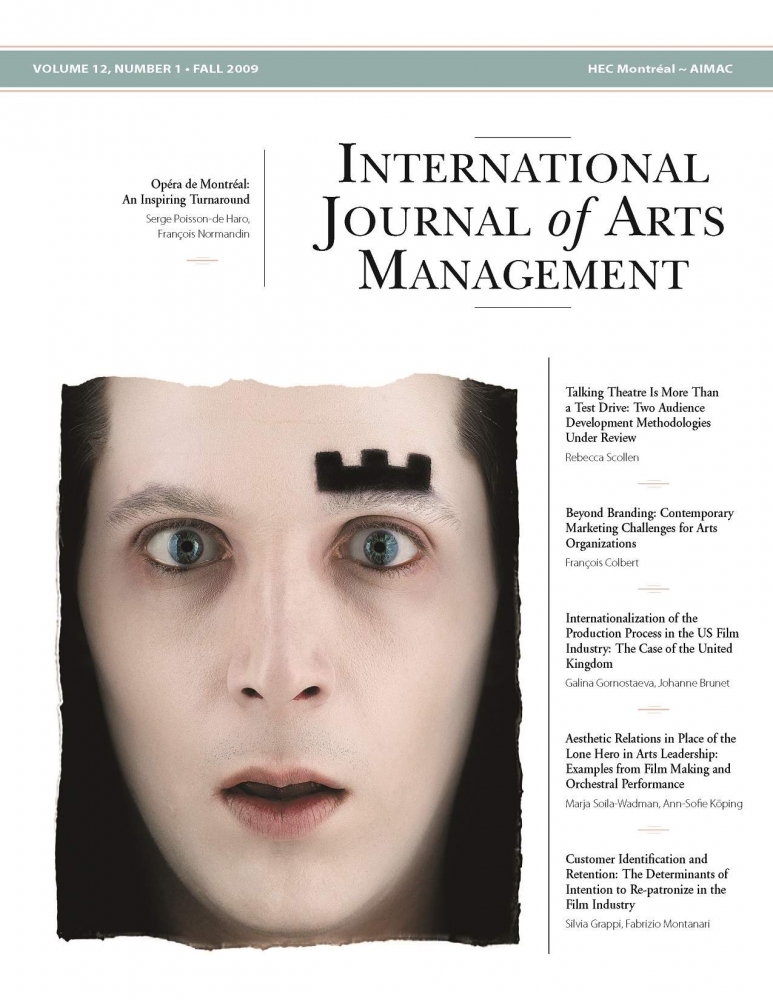IJAM Volume 12 Number 1 (PRINT)
Product: Journal
$84.00 CA
EDITOR’S NOTE
As we head into our 12th year of publication, we have updated the Journal’s design to give it a new look for the 21st century. We have also adopted a lighter presentation style to make for easier reading. We hope our readers will be happy with these changes.
The first article appears in the Manager’s Voice section because it takes a practical approach to a topic that intrigues marketing managers: non-consumers of the arts. The author of this piece, Rebecca Scollen, is also interested in the subject of subscription renewal. She describes two audience development strategies and compares experiences in three countries: Australia, New Zealand and Great Britain.
In the second contribution, I analyze the behaviour of demand for cultural products and explain how an organization can succeed in spite of market saturation. This article was previously presented as part of the Kenneth Myers Lecture Series hosted by Deakin University in Melbourne, Australia.
The next article, by Galina Gornostaeva and Johanne Brunet, looks at the structure of the film industry in terms of American movies filmed and produced in Great Britain. A study of the key players in the industry reveals that both American producers and British service companies reap the benefits of this type of collaboration.
In the fourth contribution in this issue of IJAM, Marja Soila- Wadman and Ann-Sofie Köping deal with the notion of the company leader as “hero.” Their research, which focuses on the worlds of feature film production and symphony orchestras, indicates that leadership is exerted by a team, as opposed to being based solely on the actions of a single individual.
Drawing on the theory of planned behaviour, Silvia Grappi and Fabrizio Montanari demonstrate that people who frequent a cinema complex tend to remain loyal to a particular distribution company because they identify with both the theatre and its regular patrons.
Finally, Serge Poisson-de Haro and François Normandin, in the Company Profile, recount the remarkable experience of Canada’s Opéra de Montréal. Faced with a crippling financial crisis, this institution was able to recover financially and reclaim its rightful place as part of Montreal’s cultural scene by virtue of a downsized but dedicated team.
Pleasant reading!
François Colbert
